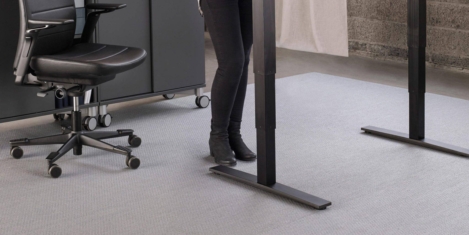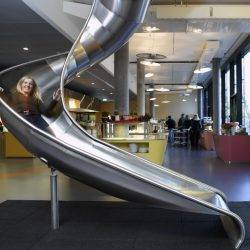October 11, 2017
UK businesses continue to stifle personal creativity at work
 UK businesses are failing to support a culture of innovation despite employees believing that their companies would benefit from fresh ideas and innovative ways of working, new research claims. The study of 1,000 workplaces conducted by RADA in Business (the commercial subsidiary of the Royal Academy of Dramatic) found that 81 percent of workplaces had failed to create a culture of creativity at work that encourages new ideas and experimentation, according to their staff. Many employees feel that businesses are suffering as a result, with just under a quarter (24 percent) saying that their workplace is desperately in need of new ideas and fresh thinking to overcome current problems.
UK businesses are failing to support a culture of innovation despite employees believing that their companies would benefit from fresh ideas and innovative ways of working, new research claims. The study of 1,000 workplaces conducted by RADA in Business (the commercial subsidiary of the Royal Academy of Dramatic) found that 81 percent of workplaces had failed to create a culture of creativity at work that encourages new ideas and experimentation, according to their staff. Many employees feel that businesses are suffering as a result, with just under a quarter (24 percent) saying that their workplace is desperately in need of new ideas and fresh thinking to overcome current problems.





















 The majority (94 percent) of workers are open to flexible ways of working such as part-time, freelance, contract, temporary or independent contract work a new report from ManpowerGroup has revealed. Coining the trend as NextGen work, the research suggests this approach to a job is a choice (81 percent) not a last resort (19 percent). Findings from #GigResponsibly: The Rise of NextGen Work – a global survey of 9,500 people in 12 countries – identifies a shift towards this new way of getting work done, and that it works for people and employers. People were asked how they want to work, what motivates them and their views on NextGen Work. More control over their schedule (42 percent), boosting their bank account (41 percent) and developing new skills (38 percent) are top reasons why this flexible kind of work is on the rise. The report also found that this flexible approach is not just attractive to Millennials, as meaningful work and employer appreciation are valued more by Boomers than any other generation. More than 80 percent of US workers say NextGen Work is a choice, not a last resort, and builds resilience for less predictable futures.
The majority (94 percent) of workers are open to flexible ways of working such as part-time, freelance, contract, temporary or independent contract work a new report from ManpowerGroup has revealed. Coining the trend as NextGen work, the research suggests this approach to a job is a choice (81 percent) not a last resort (19 percent). Findings from #GigResponsibly: The Rise of NextGen Work – a global survey of 9,500 people in 12 countries – identifies a shift towards this new way of getting work done, and that it works for people and employers. People were asked how they want to work, what motivates them and their views on NextGen Work. More control over their schedule (42 percent), boosting their bank account (41 percent) and developing new skills (38 percent) are top reasons why this flexible kind of work is on the rise. The report also found that this flexible approach is not just attractive to Millennials, as meaningful work and employer appreciation are valued more by Boomers than any other generation. More than 80 percent of US workers say NextGen Work is a choice, not a last resort, and builds resilience for less predictable futures.














October 10, 2017
We (still) need to talk about mental health in the workplace
by Liam Butler • Comment, Wellbeing
(more…)